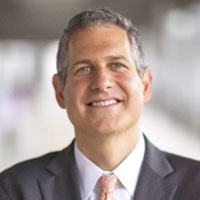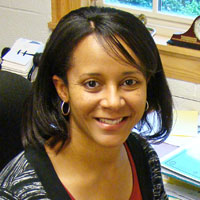Gillings School researchers engaged in NCI grant to address cancer disparities
January 21, 2016
Two three-year funding awards from the National Cancer Institute (NCI) will bolster work by the UNC Lineberger Comprehensive Cancer Center to address disparities in cancer incidence and mortality in North Carolina and across a three-state region.
A three-year grant of $339,909 will support collaboration between UNC Lineberger and the Medical University of South Carolina (MUSC) Hollings Cancer Center to address cancer disparities across North and South Carolina and Tennessee. The grant will help UNC Lineberger and MUSC to identify and build cancer disparities-focused collaborations, training programs and funding opportunities in the three-state region, known as Region 1-South. It was awarded as an administrative supplement through the Geographical Management of Cancer Health Disparities Program, a federal effort to grow cancer health disparities research and training.
“We are thrilled for the opportunity to work with our colleagues at MUSC to coordinate cancer health disparities activities across our region, expand the network of cancer equity-focused researchers, and disseminate information about professional development, funding opportunities, collaborative efforts, and evidence-based research in this field within the region,” said Stephanie B. Wheeler, PhD, assistant professor of health policy and management at the UNC Gillings School of Global Public Health and UNC Lineberger member.
Wheeler is site director for the project at UNC.
In addition to Wheeler, the supplement is co-led locally by Ethan Basch, MD, associate professor of health policy and management at the Gillings School and of oncology in the UNC School of medicine. Basch, director of the UNC Lineberger Cancer Outcomes Research Program, will work with Chanita Hughes-Halbert, PhD, at MUSC. MUSC’s LaShanta Rice, PhD, and Anissa I. Vines, PhD, research assistant professor of epidemiology at the Gillings School, are regional coordinating co-directors.
The program draws on UNC’s strengths — including the collaboration of multidisciplinary teams in health policy and management, health behavior, epidemiology, medicine, nursing and other disciplines, Wheeler said. In addition, UNC researchers, who are able to monitor regional and subpopulation trends through the Integrated Cancer Information and Surveillance System, are committed to working with the non-academic community to address the persistent problem of cancer disparities.
“Cancer health disparities are a priority research area for UNC Lineberger,” Basch said, “and this opportunity to lead and coordinate efforts in the region will help advance this essential area of work and provide support for our investigators.”
Another grant totaling $381,873 was awarded to UNC Lineberger to support the work of a community health educator to enhance outreach and education, and to disseminate culturally appropriate, evidence-based cancer information. The award will support an overall objective of the cancer center to address cancer incidence and mortality in the state, including disparities in incidence and mortality.
To support that mission, UNC Lineberger community health educator Veronica Carlisle, MPH, CHES, will work to enhance the impact of center investigators in underserved communities. Carlisle previously worked as a community health educator with the NCI Center for Cancer Health Disparities-funded Carolina Community Network Center to Reduce Cancer Health Disparities.
According to program director Edwin Fisher, PhD, professor of health behavior in the Gillings School, the UNC Lineberger community health education program especially will emphasize peer support and lay health adviser approaches to cancer prevention and the enhancement of cancer care. Fisher, who is global director of Peers for Progress, an organization that promotes peer support, especially in diabetes management, noted that lay health advising and peer support are particular strengths of faculty members involved in the project.
Fisher will work with co-directors Eugenia Eng, PhD, professor of health behavior in the Gillings School and UNC Lineberger member, and Anissa Vines.





